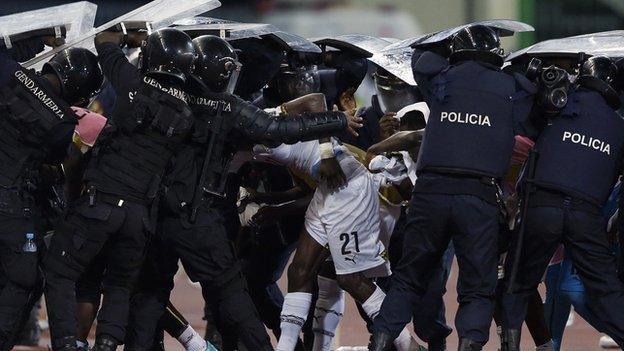Equatorial Guinea-Ghana riot: Joyous evening turns to night of shame
- Published
African Cup of Nations: Night of shame for African football
Shortly after Ghana scored their third goal against Equatorial Guinea in Thursday's Africa Cup of Nations semi-final, Equatorial Guinea's supporters disgraced their country.
The home fans began to cause trouble before half-time, hurling so many water bottles at the Ghana bench that their squad needed protection from riot police to get down the tunnel.
The bottle throwing continued, delaying the start of the second half and prompting the Equatorial Guinea players to plead with their own fans to stop.
But the pleas fell on deaf ears, and what should have been a night of celebration for the visiting Ghanaian fans inside the Estadio de Malabo became the stuff of nightmares.
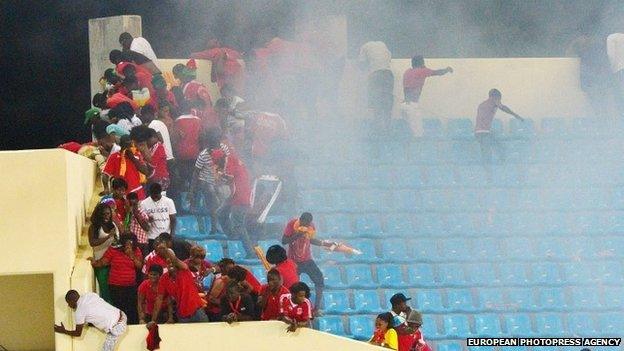
Fans flee from tear gas as violence interrupts the African Cup of Nations semi-final
So many stones were thrown in their direction by the enraged home fans - whose improbable Nations Cup dream lay in tatters - that they had to force open a security gate and run on to the pitch, where they huddled behind the goal for their own safety.
I was forced to take refuge among them, my hopes of filming the joyous celebrations of the Ghanaian fans after the game ruined by the violence.
There I saw the objects that had been thrown. A piece of mirror, a broken plate, a broken-off handle, bottles filled with urine and stones.
Later I saw a Ghanaian fan collapse after a stone struck him near his heart. Fortunately, he was not seriously injured.
"This was the highest state of barbarism," said Ghana FA chairman Kwesi Nyantakyi.
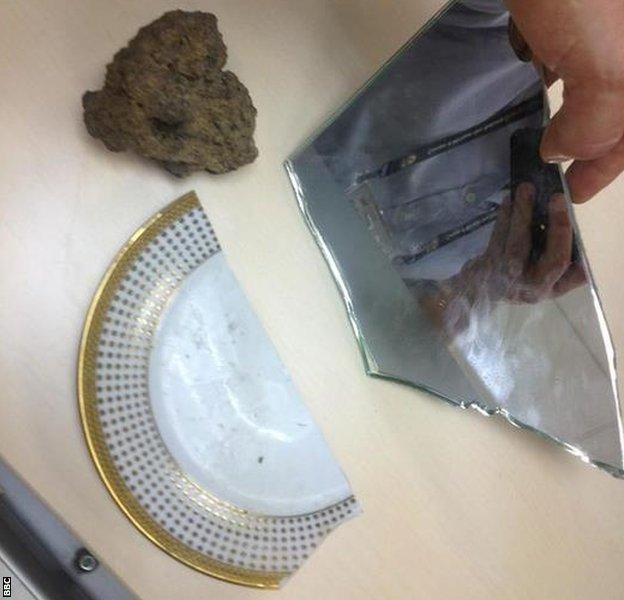
Piers Edwards removed these objects from the pitch
Among the many questions that have to be asked are: Why was there no security cordon placed around the Ghana fans behind the goal once they sheltered together in fear?
Why was there not sufficient distance placed between those supporters and the locals?
And why did it take security personnel so long before they entered the stands to control the violent fans? An apparent attempt to clear them by flying a helicopter low over the stadium was, unsurprisingly, a failure.
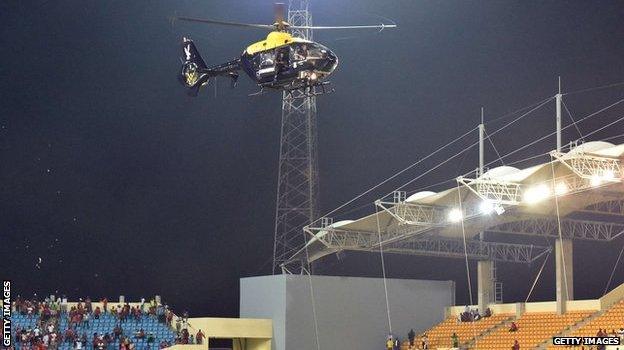
A police helicopter hovers over the stadium
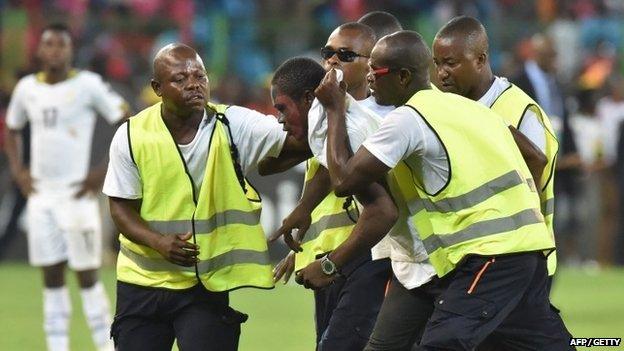
Security officials drag an Equatorial Guinea fan from the pitch
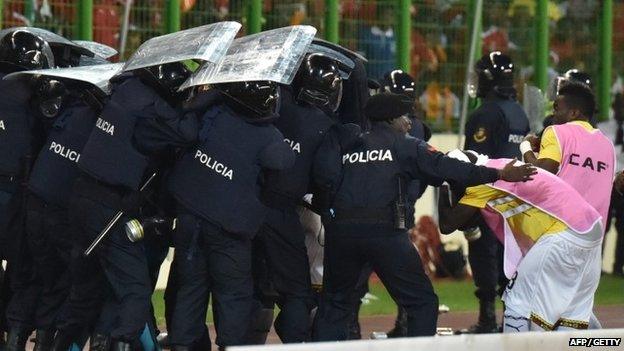
Ghana players leave the pitch at half time protected by riot police
The event will put even greater pressure on the Confederation of African Football (Caf), already under scrutiny over allegations of cheating in Equatorial Guinea's controversial quarter-final win over Tunisia. Caf denies the allegations.
Equatorial Guinea have done a remarkably good job of staging the finals, given that they had just two months' notice after Ebola fears forced Morocco to withdraw. Now, the tiny oil-rich nation is likely to face sanction by Caf.
Those fans who rioted turned an evening of joyous celebration to a night of shame.
The stones they threw did not just damage the Ghanaian fans they struck, they damaged African football itself.

A history of African football violence
August 2014: Cameroonian player Albert Ebousse died after being hit by an object thrown by opposing fans. The JS Kabylie striker, who was 24, was leaving the pitch after a 2-1 defeat to USM Alger when he was hit by the projectile. He died later in hospital.
October 2012: Senegal were disqualified from the Africa Cup of Nations in 2012 after a riot by their fans led to a play-off game against the Ivory Coast being abandoned. Stones and bottles were thrown on to the pitch and police responded by firing tear gas into the crowd in Dakar.
February 2012: At least 74 people were killed when fans of the al-Masry and al-Ahly clubs clashed after a game in the Egyptian city of Port Said. Knives were reportedly smuggled into the stadium by fans, with a lack of security contributing to the violence.
November 2009: Egypt's defeat by Algeria in a World Cup qualifying match led to violence on the streets of Cairo that injured 35. Riot police had to be called in after fans reportedly hurled firebombs at police and overturned a police van.
May 1999: Seven people, including two children, died on the island of Mauritius after a football riot escalated and petrol bombs were thrown into a casino. Fans of the Scouts Club rampaged after losing to rivals Fire Brigade in the capital Port Louis, torching sugar cane fields and attacking police.
- Attribution
- Published5 February 2015
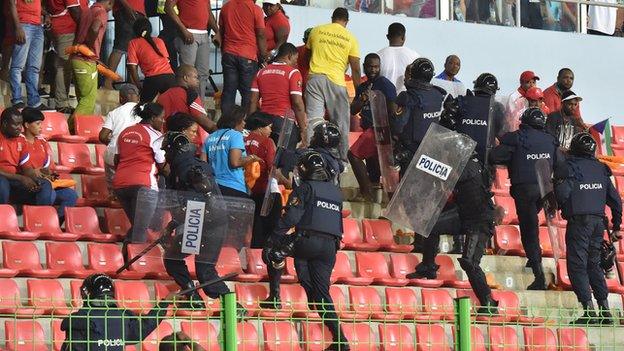
- Attribution
- Published4 February 2015
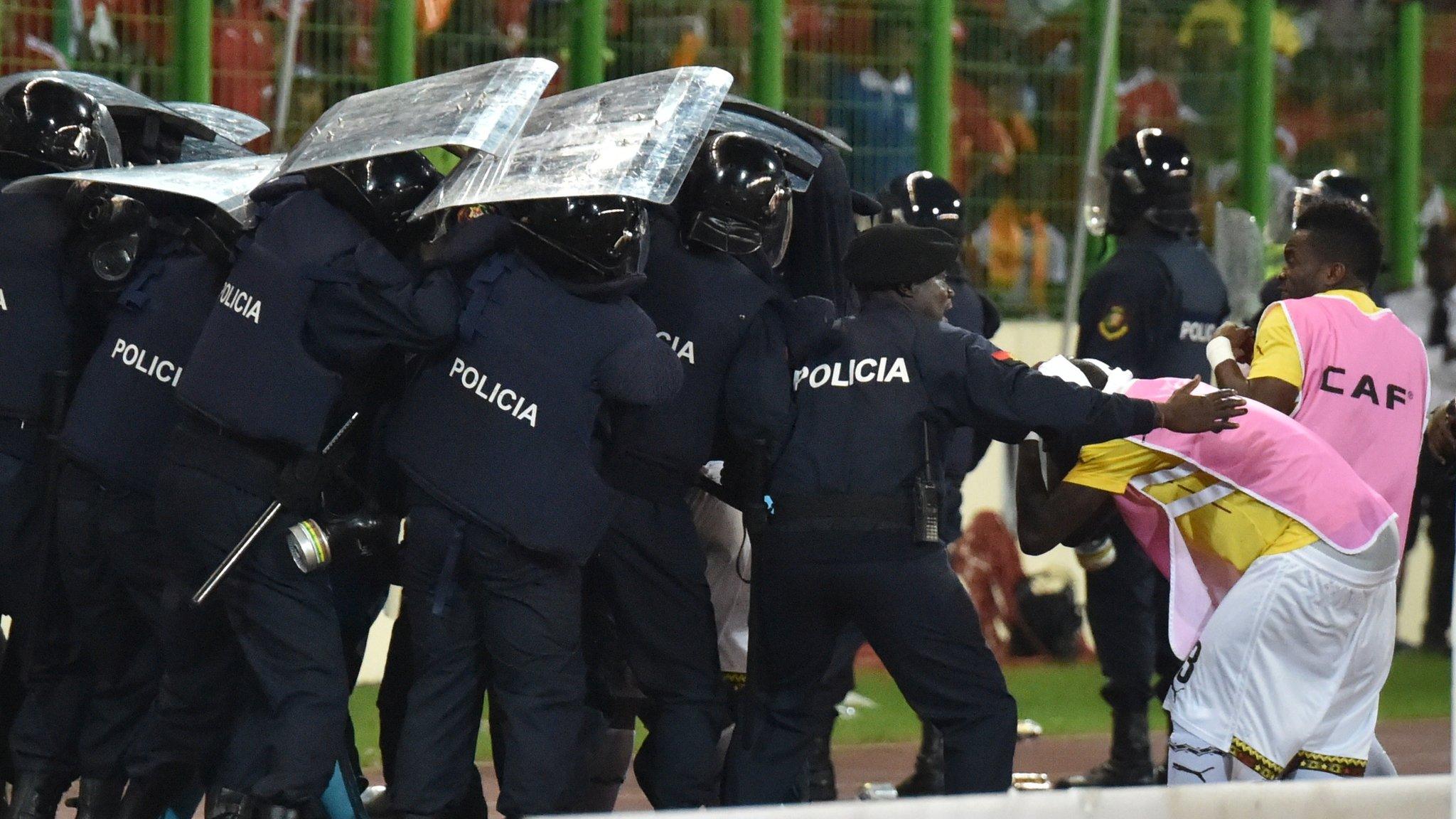
- Attribution
- Published6 February 2015
